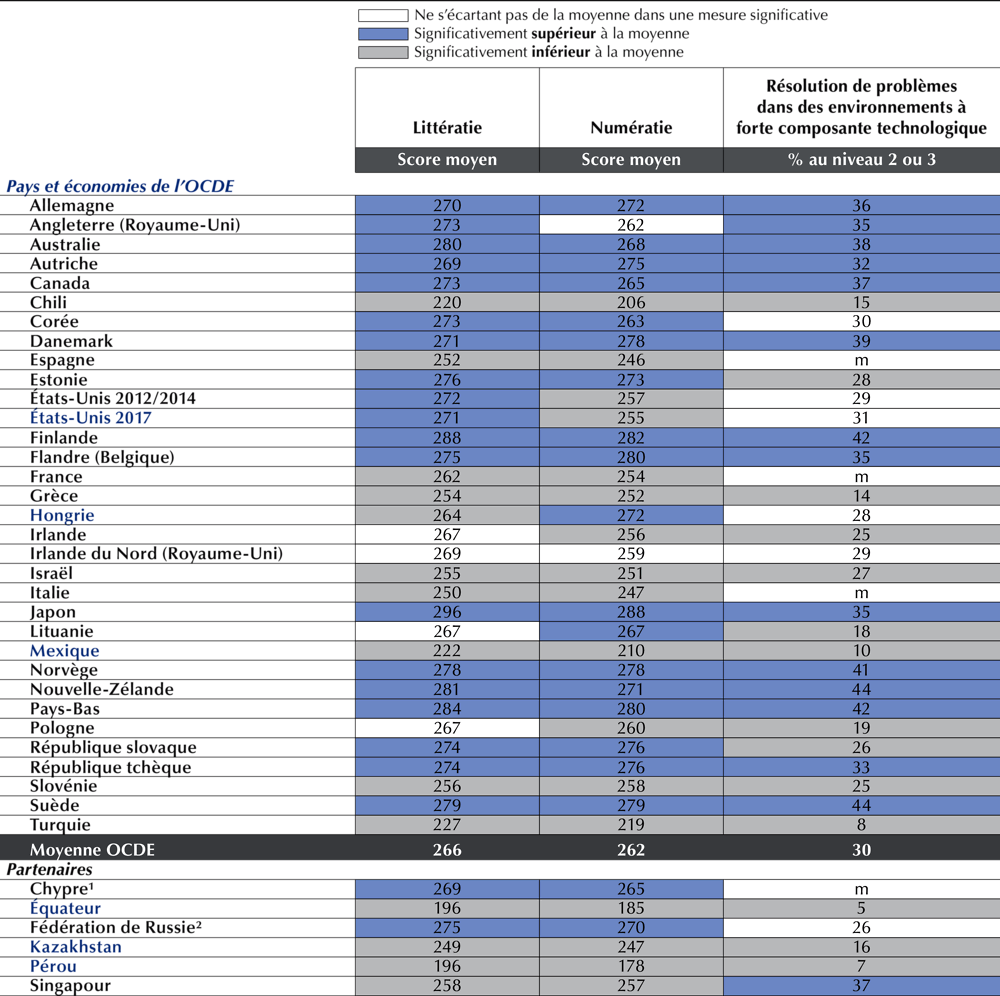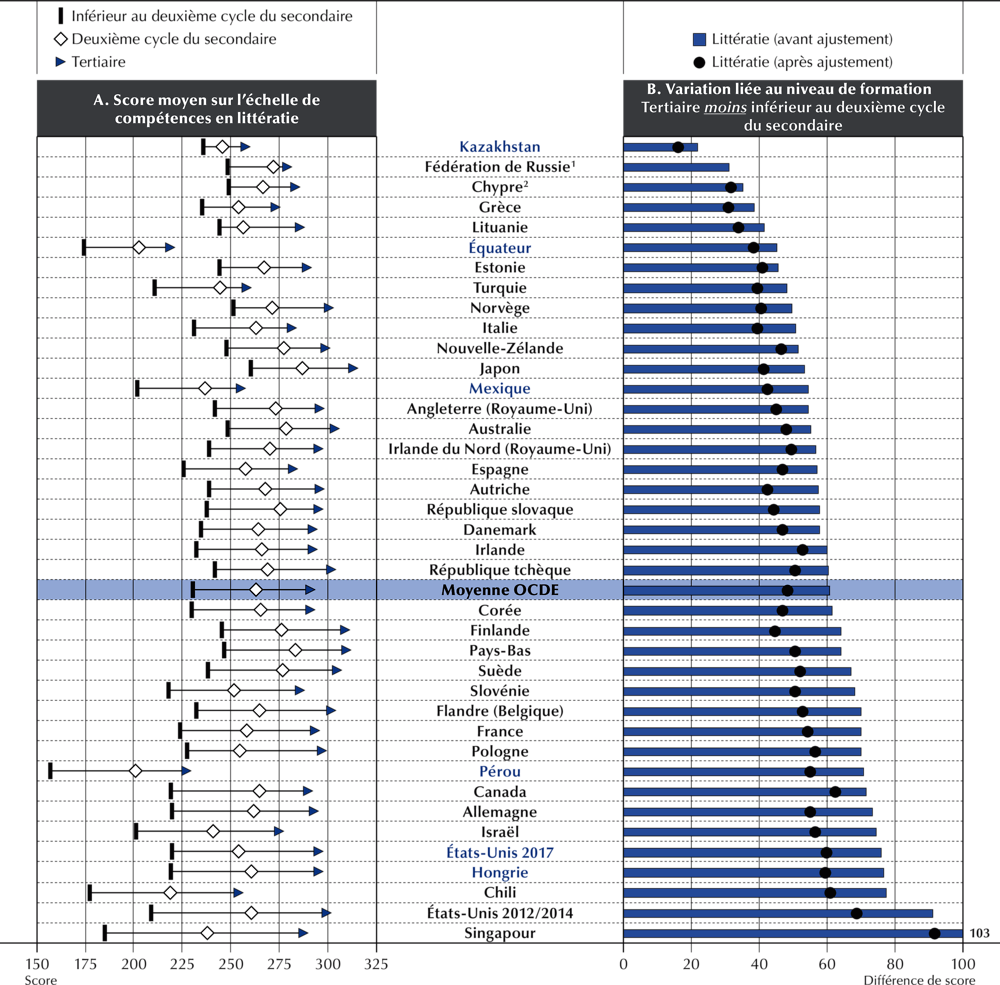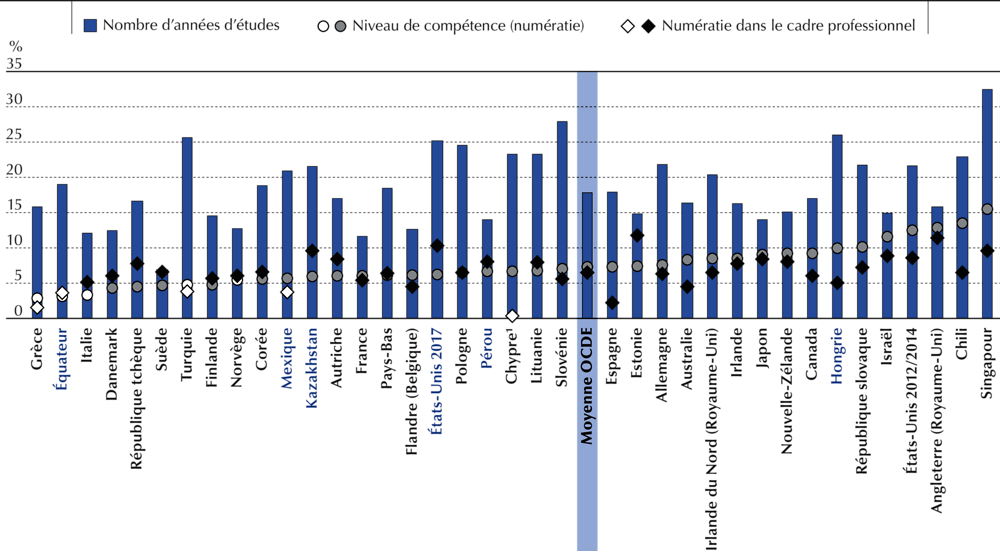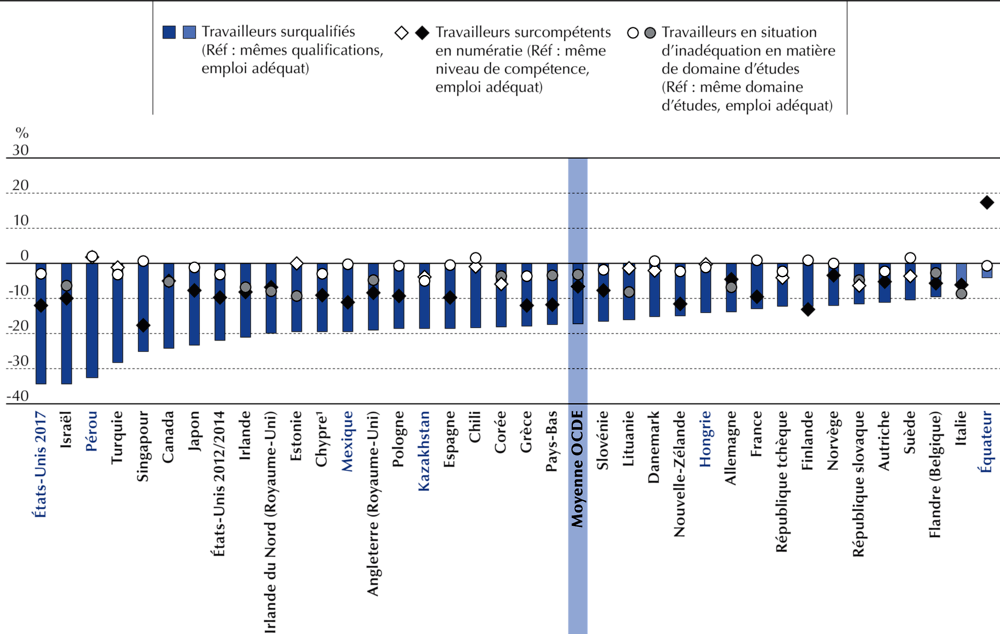[14] Acosta, P., N. Muller et M. Sarzosa (2017), Beyond Qualifications: Returns to Cognitive and Socioemotional Skills in Colombia, Institute of Labor Economics, http://conference.iza.org/conference_files/Statistic_2018/sarzosa_m23031.pdf (consulté le 7 mai 2019).
[19] Banque mondiale (2019), The STEP Skills Measurement Program, Banque mondiale, https://microdata.worldbank.org/index.php/catalog/step/about (consulté en juillet 2019).
[5] Banque mondiale (2019), World Bank Country and Lending Groups, Banque mondiale, https://datahelpdesk.worldbank.org/knowledgebase/articles/906519-world-bank-country-and-lending-groups.
[6] Banque mondiale (2019), Les données ouvertes de la Banque mondiale, Banque mondiale, https://donnees.banquemondiale.org/ (consulté en juillet 2019).
[13] Cunningham, W., P. Acosta et N. Muller (2016), Minds and Behaviors at Work: Boosting Socioemotional Skills for Latin America’s Workforce, Publications de la Banque mondiale, https://elibrary.worldbank.org/doi/book/10.1596/978-1-4648-0884-5 (consulté le 7 mai 2019).
[11] Hogan, J. et al. (2016), Main Study and National Supplement Technical Report (NCES 2016-036REV), U.S. Program for the International Assessment of Adult Competencies (PIAAC) 2012/2014, National Center for Education Statistics, Institute of Education Sciences, U.S. Department of Education. Washington, D.C., https://nces.ed.gov/pubs2016/2016036_rev.pdf.
[18] Krenzke, T. et al. (2019), U.S. Program for the International Assessment of Adult Competencies (PIAAC) 2012/2014/2017: Main Study, National Supplement, and PIAAC 2017 Technical Report (NCES 2020042), U.S. Department of Education. Washington, D.C.: National Center for Education Statistics.
[3] Maehler, D., S. Bibow et I. Konradt (2018), « PIAAC Bibliography: 2008-2017 », GESIS Papers, n°2018/03, Leibniz-Institut für Sozialwissenschaften, Cologne, https://nbn-resolving.org/urn:nbn:de:0168-ssoar-56014-4.
[15] Ocampo, J. et N. Gómez-Arteaga (2017), « Social protection systems, redistribution and growth in Latin America », CEPAL Review, n°122, Economic Commission for Latin America and the Caribbean, https://repositorio.cepal.org/handle/11362/42655.
[12] OCDE (2019), Technical Report of the Survey of Adult Skills, Third Edition, http://www.oecd.org/skills/piaac/publications/PIAAC_Technical_Report_2019.pdf.
[8] OCDE (2018), Skills in Ibero-America: Insights from PISA 2015, OCDE, http://www.oecd.org/pisa/sitedocument/Skills-in-Ibero-America-Insights-from-PISA-2015.pdf.
[2] OCDE (2016), L’importance des compétences : Nouveaux résultats de l’Évaluation des compétences des adultes, Éditions OCDE, Paris, https://doi.org/10.1787/9789264259492-fr.
[1] OCDE (2013), Perspectives de l’OCDE sur les compétences 2013 : Premiers résultats de l’Évaluation des compétences des adultes, Éditions OCDE, Paris, http://dx.doi.org/10.1787/9789264204096-fr.
[16] OCDE (2013), Technical Report of the Survey of Adult Skills, octobre, http://www.oecd.org/skills/piaac/_Technical%20Report_17OCT13.pdf.
[7] OCDE (2012), « Argent rime-t-il avec bonne performance dans l’enquête PISA ? », PISA à la loupe, n°13, Éditions OCDE, Paris, https://doi.org/10.1787/5k9fhmg382zt-fr.
[17] PIAAC (2014), PIAAC Technical Standards and Guidelines, juin, http://www.oecd.org/skills/piaac/PIAAC-NPM(2014_06)PIAAC_Technical_Standards_and_Guidelines.pdf.
[10] Rampey, B. et al. (2016), Skills of US Unemployed, Young, and Older Adults in Sharper Focus: Results from the Program for the International Assessment of Adult Competencies (PIAAC) 2012/2014. First Look, National Center for Education Statistics, Washington, D.C.
[9] UIT (2019), ICT Statistics, Union internationale des télécommunications (UIT) https://www.itu.int/en/ITU-D/Statistics/Pages/stat/default.aspx.
[4] UNSD (2018), SDG Indicators: Metadata Repository, Nations Unies, Commission de statistique, https://unstats.un.org/sdgs/metadata/ (consulté le 5 juillet 2019).





